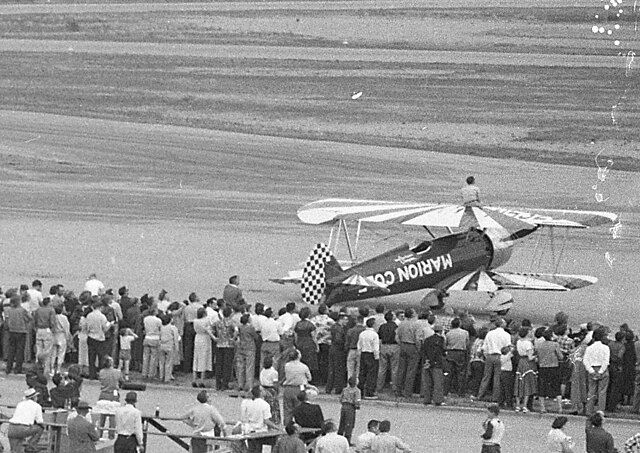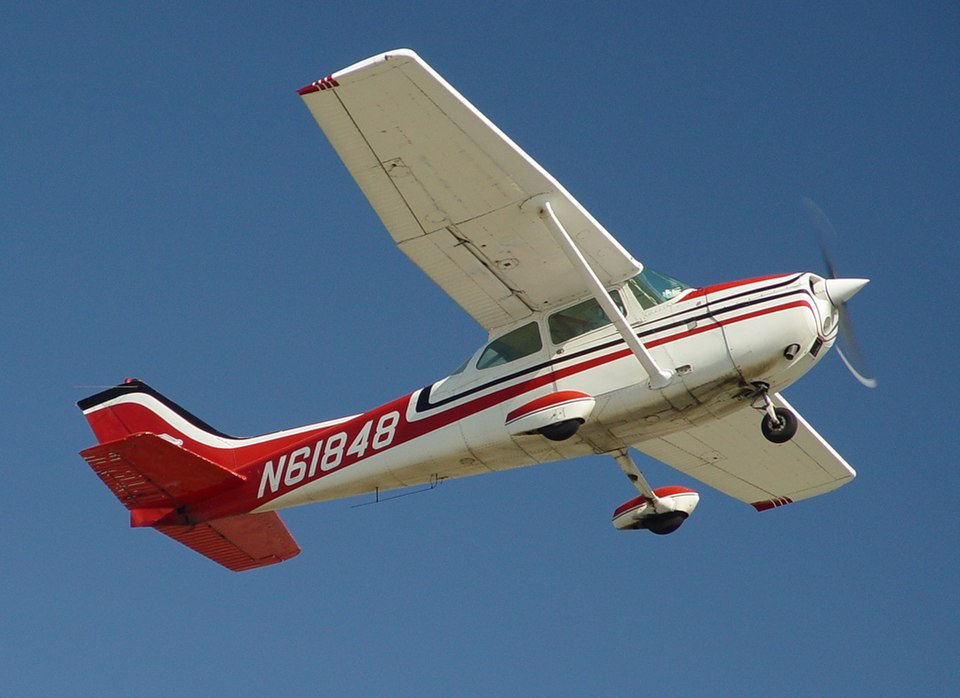Six Highly Effective Ways to Mitigate Check Ride Stress
- William O'Connor
- 3 days ago
- 6 min read
Updated: 2 days ago

Enter your Check Ride with Confidence
When it comes to stress and fatigue, a common question that Designated Pilot Examiners (DPE) might ask on the day of your check ride is something like: “What type of stress and fatigue are you feeling right now?” A typical, honest response might be: “Acute stress and acute fatigue, because I was nervous coming into the check ride and may have lost a little sleep last night.” While that may be true, there are steps you can take to minimize those pre-check ride nerves. Here’s a list of six strategies every pilot can use to stay calm, focused, and prepared.
Don't Wait Until the Night Before the Check Ride to Start Studying
Preparing for a check ride is one of the most important milestones in a pilot’s training journey. Yet, time and time again, students make the same mistake: waiting until the last minute to study. While this might sound like common sense to avoid, it’s more common than you’d think, students show up to their check rides underprepared, stressed, and hoping their short-term memory will carry them through.
The truth is, the check ride is not designed to test what you crammed the night before. It’s designed to evaluate whether you’ve built a solid foundation of aeronautical knowledge, decision-making skills, and the ability to apply them in real-world scenarios. A last-minute review might help you remember a regulation number, but it won’t give you the confidence or depth of understanding that examiners are looking for.
Studying over time reinforces long-term retention. By spreading out your preparation, you give yourself multiple opportunities to identify weak spots and strengthen them. This not only helps you pass the check ride, it prepares you to be a safe, competent pilot in everyday flying.
Your check ride is not just a test, it’s a reflection of the work you’ve put in throughout your training. Walking in well-prepared means you can focus on flying your best instead of stressing about what you don’t know. So don’t sabotage yourself by leaving studying to the night before. Start early, study consistently, and give yourself the best chance to succeed.
Do Something Enjoyable the Night Before Your Check Ride
For many student pilots, the check ride is one of the most stressful milestones in training. After months of lessons, hours of studying, and countless flights, everything comes down to this evaluation. It’s natural to feel nervous—but the night before your check ride is not the time to bury yourself in books or pull an all-night study session. In fact, one of the best things you can do is relax and do something you enjoy.
Your check ride isn’t a pop quiz, it’s an opportunity to demonstrate the skills and knowledge you’ve been building all along. By the night before, your preparation should already be complete. Staying up late cramming often leads to fatigue, anxiety, and diminished performance during the exam. Examiners can spot when a student is mentally scattered or exhausted, and it can impact how you handle both the oral and the flight portion.
The night before your check ride should not be about squeezing in last-minute knowledge, it should be about setting yourself up mentally and physically for success. Trust the work you’ve put in, allow yourself to relax, and go into the check ride confident and rested. Sometimes, the best preparation isn’t more studying, it’s giving yourself the chance to recharge.
Avoid Alcohol and Substances That Could Make You Feel Groggy in the Morning
The night before your check ride, you want to give yourself every possible advantage. You’ve put in the hours of training, studied hard, and practiced with your instructor, so don’t let something preventable hold you back. Two of the most common culprits that can sabotage your performance the next day are alcohol and even seemingly harmless sleep aids like melatonin.
It’s no secret that alcohol and aviation don’t mix. FAA regulations are strict for a reason, alcohol impairs judgment, slows reaction time, and affects decision-making, even long after you’ve had your last drink. Even if you stop drinking well before the 8-hour “bottle-to-throttle” rule, you may still feel sluggish, dehydrated, or mentally foggy the next morning. That’s the last thing you want when you’re being evaluated on precision, situational awareness, and professionalism.
Many students think a melatonin supplement is a good way to fall asleep the night before the check ride. While melatonin is generally safe, it can sometimes leave you feeling groggy or sluggish in the morning, especially if you haven’t used it before or if you take more than your body needs. The last thing you want is to walk into your oral exam feeling mentally cloudy, even if you technically got a “full night’s sleep.”
Your check ride demands a sharp, rested mind. Alcohol and substances like melatonin might seem harmless, or even helpful, but both can leave you feeling less than 100% in the morning. Trust your training, give your body the chance to recharge naturally, and show up clear-headed, confident, and ready to succeed.
Ensure That Your Travel Plans Have Been Reserved
For many student pilots, the day of the check ride starts before sunrise, especially if you need to fly from your home airport to meet your examiner at a different location. While it’s easy to focus all your energy on studying and reviewing procedures, logistical preparation is just as important for a smooth, stress-free day.
Arriving late, scrambling for a rental aircraft, or discovering that the plane hasn’t been fueled can throw off your mindset and add unnecessary stress. By taking care of your travel arrangements ahead of time, you can focus entirely on performing your best during the check ride rather than worrying about details that are easily preventable.
Make sure the plane you plan to fly is reserved and available for your departure time. Verify that the aircraft is properly fueled and that oil levels are within limits. These are simple checks that prevent delays or safety issues. Review the flight plan, weather, and alternate airports so you’re prepared for any unexpected changes. Headsets, charts, logbooks (endorsements), and any required documents should be packed and ready the night before. Aim to arrive at the airport early to handle preflight checks without rushing. A smooth travel day sets the tone for your check ride. By confirming reservations, checking the aircraft, and preparing ahead, you eliminate unnecessary stress and give yourself the best chance to stay focused, confident, and ready to succeed.
Go to Bed Early the Night Before and Wake Up Early Before Your Check Ride
A successful check ride isn’t just about knowledge or flying skills, it’s also about being mentally and physically ready. One of the simplest but most often overlooked ways to set yourself up for success is managing your sleep the night before.
The night before your check ride should be focused on rest, not last-minute cramming. Going to bed early allows your brain and body to recharge, improving memory retention, reaction time, and overall focus. Fatigue can cloud your judgment and increase stress levels, making even routine tasks feel more difficult.
Arriving at the airport with plenty of time before your check ride is crucial. Waking up early gives you a calm, unhurried start. You can eat a healthy breakfast to fuel your mind and body. A well-rested pilot is a confident, sharp, and focused pilot. By prioritizing sleep and waking up early, you give yourself the best chance to walk into your check ride calm, prepared, and ready to perform at your highest level.
Read all Correspondence with Your Examiner Thoroughly
When preparing for a check ride, it’s easy to focus solely on studying procedures and practicing maneuvers, but reading all correspondence from your examiner is just as important. These emails or messages often contain key instructions, clarifications, and information that can directly impact your exam performance.
Examiners may provide details about: Weight and balance scenarios that they may want you to catch and correct. They may issue complex instructions about flight planning and ask you to consider fuel requirements and personal minimums
Missing or overlooking this information can lead to unnecessary stress, last-minute confusion, or even mistakes during the check ride.
In order to avoid missing important information, read every message carefully. Be sure to not skim and pay attention to dates, times, and details. Highlight any key points and make notes about weight, performance limits, or special instructions for quick reference. Ask Questions If Needed. If something is unclear, reach out to your examiner before the day of the check ride.
Thoroughly reviewing correspondence with your examiner ensures you’re fully prepared, reduces surprises, and demonstrates professionalism. Being proactive and diligent in this area is just as important as mastering maneuvers, it shows you’re attentive, responsible, and ready to succeed.
Conclusion
Preparing for your FAA check ride doesn’t have to be overwhelming. By planning ahead, taking care of logistics, prioritizing rest, and approaching the day with a clear, focused mindset, you set yourself up for success. Hopefully, this list of tips has provided you with practical strategies to feel confident, organized, and ready to perform at your best. Now it’s time to trust your training, stay calm, and show what you’ve learned!



Comments